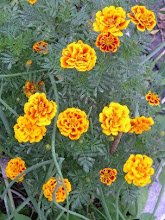"The right sentiment, rightly declared, whichever way your loyalties blow in the gust of the smoke-filled air. A country burns. The death-dealers deserved to die, you say. Death is easy to pronounce. It’s the smell of burning children that’s hard." Sampurna Chattarji
"We read our mail and counted up our missions – In bombers named for girls, we burned The cities we had learned about in school till our lives wore out; our bodies lay among the people we had killed and never seen.” Randall Jarrell
"We have to stop speaking in codes. Collateral damage is code for thousands of people being killed who are powerless to change their rulers." Arthur Miller
"Six lines by a hero of mine. His name is Cameron Penny and he is in the fourth grade. He said: 'If you are lucky in this life, a window will appear on a battlefield between two armies, and when the soldiers look into the window they don’t see their enemies, they see themselves aschildren...'" Marie Howe
As you can see, the film will feature poets both living and dead, from many countries, all ages, ordinary people and people you've revered since elementary school. Poetry moves people at a level that only music can equal, I have great hopes for this film.
About the Movie
(Release Date: August, 2004)
Wilfred Owen's Last Photograph
Soldiers, journalists, historians and experts on combat provide diverse perspectives on war’s effects on soldiers, civilians and society. POETRY IN WARTIME also brings to life how poetry and war have been intertwined since the beginning of recorded history – from ancient Babylonia and the Trojan War up through the great conflicts of the 20th century and the current war in Iraq. The stirring words of poets throughout the film - Homer, Wilfred Owen, Siegfried Sassoon, Emily Dickinson, Langston Hughes, Walt Whitman and poets from Hiroshima and Nagasaki – sear the experience, emotions and sacrifices of war into our hearts and minds. POETRY IN WARTIME is a veritable chorus of poets from around the world, from the United States to Iraq as well as Colombia, Britain, India, Nigeria and Canada, whose view of war extends beyond the borders of countries to reach into the depths of our soul.
We will hear the first accounts of war, written down in verse.The film will follow war and the poems it inspires from ancient Babylon and the Trojan War up through the great conflicts of the 20th century and into the 21st century invasion of Iraq. As war has changed, so has poetry. Once celebrating conflict, poets became increasingly disturbed by the growth of larger and larger armies and increasingly powerful weapons. By World War I, poetry had become a medium of revolt. Wilfred Owen, probably the greatest of war poets, led his men in desperate battle, scribbling his poems in the trenches whenever he could. From a haunting and personal perspective, his poems chronicle the human waste of war. Owen will be a central character in the film.
As will poets as diverse as Homer, Walt Whitman, and Langston Hughes. "Poetry in Wartime" will tell the story of the poets of Hiroshima and Nagasaki who used their writing to alert the world to the dangers of nuclear war. It will also follow the grassroots global movement of thousands of poets that came together in early 2003 to protest the U.S. invasion of Iraq. The tone of the documentary will be questioning. The commentary will come from people of varying perspectives. However, in the end, "Poetry in Wartime" will always come back to the words of the poets. And to the deeper truths they express. Poetry from the past as well as the present, and poetry from everyday people as well as the world famous – will raise pressing questions of war and power at the beginning of the 21st Century.
If history and literature have taught us anything, it is that in the midst of trauma, violence and death, it is the poets who help us make sense of the senseless. In a world turned suddenly upside down, "Poetry in Wartime" can help to bring us together and lead us to a better place.
For more information, contact Kathryn Linehan.

3 comments:
Thanks for the links. I've saved them to delve into further. It's amazing how in poetry the arrow shoots straight for the heart. Your poem is very poignant as well. Glad you submitted it. :-) ---Robbie
A line from Randall Jarrell's "Death of the Ball-turret Gunner" that is permanently etched into my mind: "When I died, they washed me out of the turret with a hose."
It sounds like this documentary will be something very hard to watch, but that we absolutely should watch.
Post a Comment